- Home >
- Organika Lutein 30mg - 60 V-Caps - Organika
Lutein 30mg - 60 V-Caps - Organika
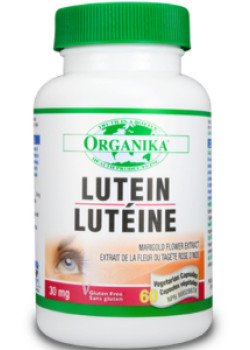
We're sorry, we no longer carry this item.
Check These out
Suggested, Similar, & Related Products:
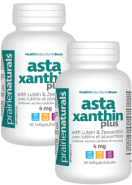
Sale: $49.99
Reg.: $79.99 (Save $30.00)
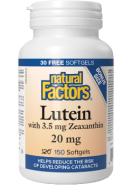
Sale: $24.99
Reg.: $29.99 (Save $5.00)
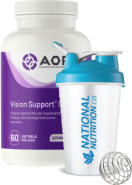
Sale: $52.09
Reg.: $65.01 (Save $12.92)
(Click Add to Select Bonus)
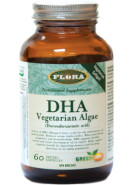
Sale: $29.99
Reg.: $37.99 (Save $8.00)

Sale: $43.19
Reg.: $53.99 (Save $10.80)
(Click Add to Select Bonus)
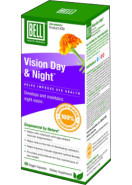
Sale: $28.99
Reg.: $37.99 (Save $9.00)
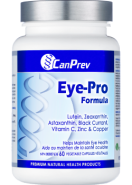
Sale: $29.99
Reg.: $33.99 (Save $4.00)
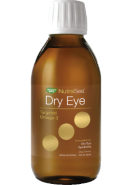
Sale: $44.99
Reg.: $59.99 (Save $15.00)
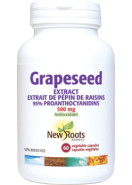
Sale: $30.99
Reg.: $35.30 (Save $4.31)
Or, Shop our Latest Deals:
Shop Now >- 30mg
- Lutein from Marigold Flower Extract (Calendula officinalis)
Format
 Veggie Caps
Veggie Caps
60 Vcaps
Dosage
Take 1 capsule daily with a meal.
Important Information
Contains no dairy, egg, artificial preservatives, colours, artificial sweeteners, wheat, soya, or corn.
- Helps protect eyesight
- Derived from marigold flowers
- Ideal for those concerned with age-related macular degeneration and cataracts
- Potent antioxidant properties
- Easy to take capsule
Related Videos
No Related VideosRelated Articles
Articles by a naturopathic doctor.
Organika, formulators of Canada’s best-selling Collagen and marine collagen and Bone Broth supports skin and joint health. Organika's health products also include; Organika spirulina, Chlorella, Curcumin to support inflammation, Organika Enhanced Collagen Protein, and Adaptogens to provide balance. Shop Organika here at National Nutrition.ca for quality, Canadian-made supplements.
Eye Health
The eye is a very important sensory organ, which is shown by the fact that a large area of our brain is committed to taking in and understanding visual information. Up to 70% of all of the sensory receptors in the body are in the eyes. Problems with the eyes become more common as we age.
Free radical damage and reduced blood flow to the eye are common causes of degenerative eye conditions.Free radicals are unstable molecules that in their bid to become more stable must bump into healthy cells and cause damage. This can cause cell death, alterations in genetic material and autoimmune reactions to damaged cells. Food, water and ultraviolet radiation from the sun are the major contributors of free radicals that build up in the eye.
The eyes reflect the overall health of the body. The vessels on the back of the eyeball are very small and fragile. Changes in them are often the first sign of cardiovascular diseases such as hypertensionand atheroclerosis. These conditions lead to decreased blood flow to the retina. Lack of oxygen and an accumulation of waste products eventually compromises vision. Poor diet, environmental toxins, medications and stress all decrease the body's ability to neutralize free radicals and maintain healthy vessels.
Cataracts
A cataract is a clouding of the eye's lens. It is the most common cause of blindness worldwide. Factors that predispose one to the development of cataracts are old age, diabetes, exposure to radiation or heavy metals, eye injury, the use of medications, like steroids, and heredity. The most common type of cataract is the senile cataract, which is the type that occurs with old age. It is believed to form after years of uncontrolled free radical damage in the eye. Free radicals are unstable molecules that in their bid to become more stable must bump into healthy cells and cause damage. They bond with the cells of the different tissues in our bodies (in this case the eye) and cause a type of damage analogous to rusting of metal. Food, water and ultraviolet radiation from the sun are the major contributors of free radicals that build up in the eye, but now the depletion of nutrients from our food supply because of over-farming also contributes.
Glaucoma
Glaucoma is the second leading cause of blindness in North America. It is characterized by a rise in the pressure inside the eyeball. The pressure causes compression of the optic nerve and permanent vision changes result. Acute glaucoma attacks can be triggered by stress or dilation of the pupil for long periods of time. The cause of acute glaucoma is a build up of fluid in the eye. Fluid build up occurs because of poor drainage or an increase in production. Chronic glaucoma results from waste accumulation in the eye, damage from previous eye problems, like cataracts, or the use of medications for high blood pressure and depression. Cortisone use can also lead to glaucoma.
Macular Degeneration
Macular degeneration is the leading cause of visual loss in North America. It is caused by free radical damage to the macula, the area of the retina responsible for central vision. Blurring in the centre of the visual field eventually makes detail work and reading impossible. The periphery of the visual field remains unaltered. Thus a kind of reverse tunnel vision results.
Lutein & Zeaxanthin
Lutein and zeaxanthin are both different isomers of the same xanthophyll pigment molecule. They are naturally occurring carotenoids found in highest abundance in green leafy vegetables. Both of these molecules play a large role in eye health. They are both found to be highly concentrated in the retina, which is the lining on the back of the eye that is responsible for vision.
Like with many other carotenoids, any lutein and zeaxanthin that is not used for immediate bodily requirements is able to act as an antioxidant to reduce free radical damage to the tissues.
Eye Health
Lutein and zeaxanthin are responsible for the ability of our eyes to absorb blue light, which is a wavelength of light that produces free radicals and puts significant oxidative stress on tissues. Studies show a correlation between high lutein consumption and increased pigmentation of the retina. Increased pigment has been shown to lower your risk of macular degeneration and cataracts, although it doesn't reverse already established illnesses. Interestingly, lutein is found in highest concentration in the peripheral retina, which better senses motion and black-and-white.
Zeaxanthin, on the other hand, is found to be highly concentrated in the macula, the more detail and colour-sensitive region of the retina. Lutein may also prove helpful for retinopathies associated with advanced diabetes likely from protection against damage from excess sugar in the blood.
Other Benefits
High lutein consumption has been associated with a reduced incidence of prostate cancer in men. It may also help prevent or slow down the thickening of the arteries known as atherosclerosis, which is a major risk for cardiovascular disease. Interestingly, cardiovascular disease is often accelerated by free radical damage.
How can I get lutein and zeaxanthin?
Eating a diet rich in green leafy vegetables like spinach, kale and collard greens is a great way to increase your lutein and zeaxanthin intake. As a supplement, lutein comes individually in capsules, or as a sublingual spray for those with compromised digestion. Both lutein and zeaxanthin can be found in a number of combination formulas for eye health. There is currently no recommended dosage for lutein or zeaxanthin. Many supplements commonly suggest between 6-12mg/day of lutein and 2-6mg/day of zeaxanthin. It is advisable to follow the recommended dosage provided by each manufacturer.
Important Information
Lutein and zeaxanthin are non-toxic, but can cause harmless yellow-orange skin pigmentation if consumed in very large amounts.
- Reviews
- POST A NEW REVIEW
Lutein 30mg - 60 V-Caps - Organika
(2 reviews)Recommendation
100%
2 out of 2 viewers would recommend this product to a friend
helpful votes
0
0 customers found this product reviews helpful
-
Date - Newest First
- Date - Newest First
- Highest Rated
- Most Helpful
2 Item(s)
2 Item(s)















